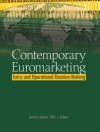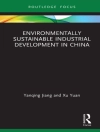The Emergent Manager examines the process of becoming a manager within organizations and considers how people relate the ways in which they ′manage′ their lives to their development as managers in the workplace.
At the heart of the book is the idea of the individual engaged in a continual process of ′becoming′. Focusing on the reported experiences of managers, the book is richly illustrated throughout with examples drawn from a variety of workplaces, including the civil service, academia, the retail industry, construction and engineering, banking and the prison service.
Tony Watson and Pauline Harris together provide a new understanding of the nature of the management role and the ways in which people make sense of their lives as managers.
Accessible and innovative, this book will be of interest to students and academics in management and organization studies as well as practising managers.
Spis treści
Making Sense of Managing
Approaching and Entering Managerial Work
Managing to Manage
Learning to Manage and Managing to Learn
Managing the Self and Fitting the Part
Managing the Self and Playing the Part
Managing Relationships and Doing the Right Thing
Managing a Life at Work and Away from Work
Boundaries, Balances and Priorities
Managing Management
Emergent Managers in a Changing World
O autorze
In my work here in Nottingham I teach, write about and do research on organisations, managerial work, strategy-making, entrepreneurship, HRM and industrial sociology. The books I have written include The Personnel Managers (1977), Management, Organisation and Employment Strategy (1986), In Search of Management (1994/ 2001), The Emergent Manager (1999), Organising and Managing Work (2002) and Sociology, Work and Industry (5th edition 2008). A theme running through my work is the relationship between the emergent life strategies and identities of organisational members (especially entrepreneurs and strategy-makers) and emergent enterprises. Although I use a variety of different research methods, I make particular use of ethnographic techniques. I am especially enthusiastic about narrative (including film-based) forms of research reporting as means of teaching and providing insights to a range of audiences about the complexities, contradictions, pains and delights of organisational and business life.












